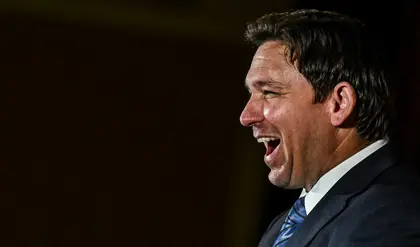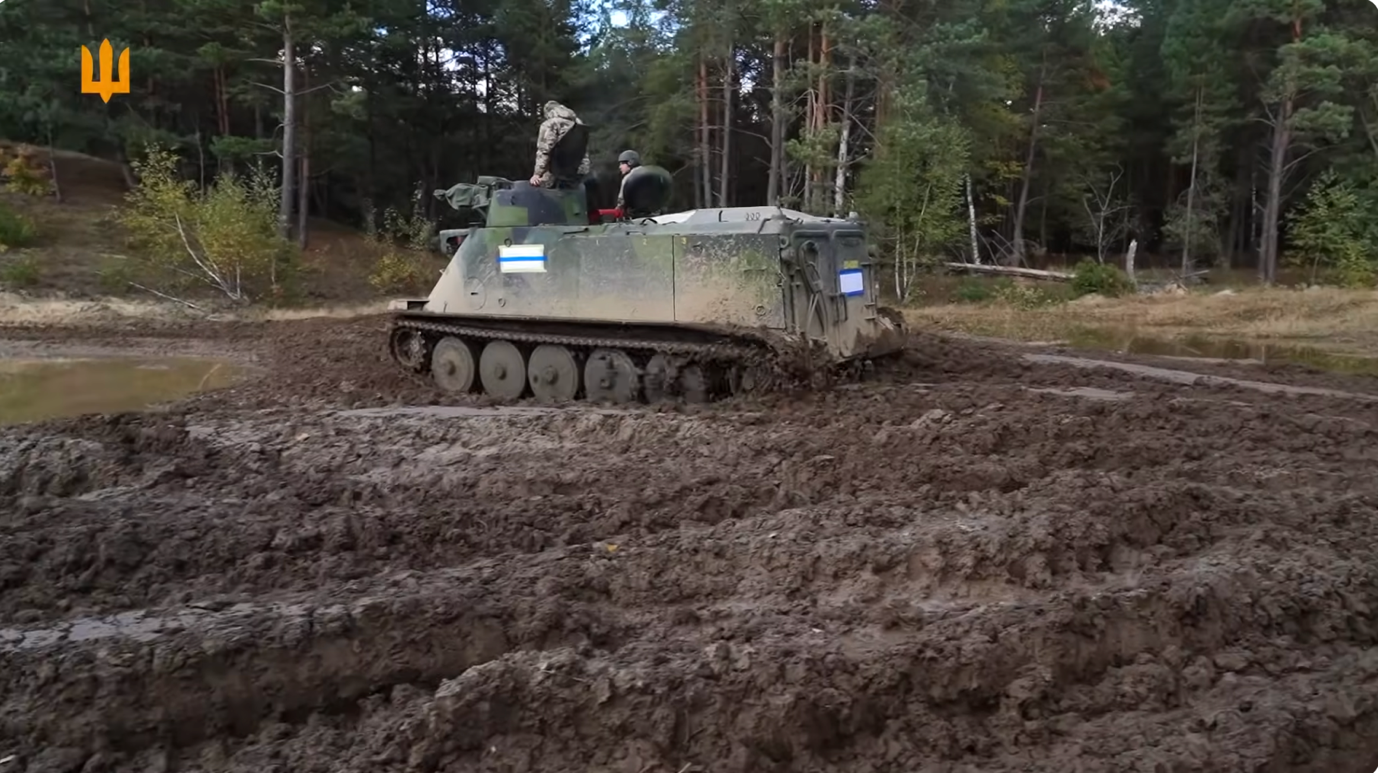Ron DeSantis has thrown his hat into the ring for the Republican Presidential candidacy. The 44-year-old Florida governor formally submitted his paperwork on Wednesday to contest the Republican Presidential candidacy.
His announcement during a livestream interview with Twitter-owner Elon Musk, however, encountered technical difficulties. Similarly, his early attempts to convey a foreign policy position on Ukraine had led to a backlash within his party.
JOIN US ON TELEGRAM
Follow our coverage of the war on the @Kyivpost_official.
Seen as the main challenger to front-running former President Donald Trump, DeSantis joined a field of seven declared Republican contenders, including Nikki Haley, a former South Carolina governor and US ambassador to the UN.
Politico characterized DeSantis’ “path to victory” as a balancing act: “DeSantis doesn’t want to be the anti-Trump, but rather a more effective (and less scandalous) continuation of the former president’s political movement.”
While combining Trump fans with loyal Republicans skeptical about the former president might be a “winning primary coalition,” it would require “DeSantis to go at Trump directly – without alienating too many of his supporters – and position himself as a more electable alternative.”
Republicans and Ukraine
Ukraine policy is particularly vexing for the Republican Party.
“The Republican electorate is generally split evenly between Trump isolationists and Reaganite idealists, the latter who strongly support Ukraine,” Brian Mefford, a Kyiv-based Republican Party insider, recently told Kyiv Post.

Quincy Jones US Music Giant and Ukraine Supporter, Dies at Age 91
“Much of the [Republican] opposition to Ukraine is rooted in the fact that Biden supports Ukraine rather than any policy or principle. It’s primarily ‘Biden is for it, so I am against it,’” Mefford said.
Trump isolationists include congressional members of the Republicans’ so-called MAGA (Make America Great Again) wing, who advocate for American disengagement from Ukraine’s defense.
One MAGA leader is Congresswoman Marjorie Taylor Greene, who last month said the US should “be pushing for peace in Ukraine, not funding a proxy war with Russia.” Most analysts argue that MAGA remains firmly in the minority among congressional Republicans.
It is in this context that DeSantis has made his public comments to date on Ukraine; they are varied and his position on Ukraine might best be described as ambiguous.
In one of his first forays into foreign policy, in February 2023, DeSantis criticized President Joe Biden for a “blank-check policy” on Ukraine after the President completed an unannounced Kyiv visit shortly before the first anniversary of Russia’s full-scale invasion.
“They have effectively a blank-check policy with no clear, strategic objective identified, and these things can escalate,” DeSantis said on Fox & Friends. “I don’t think it’s in our interests to be getting into a proxy war with China, getting involved over things like the borderlands or over Crimea.”
Then, in mid-March, DeSantis sent a statement to Tucker Carlson – the notorious, pro-Putin, and since-released Fox broadcaster – in which he echoed a Russian talking point by referring to the war as a “territorial dispute between Ukraine and Russia.”
“While the US has many vital national interests… becoming further entangled in a territorial dispute between Ukraine and Russia is not one of them,” DeSantis wrote in response to Carlson’s questionnaire.
Citing a goal of peace, DeSantis said the US should not provide any assistance that would lead to the deployment of American troops or “enable Ukraine to engage in offensive operations beyond its borders.”
DeSantis also said, “F-16s and long-range missiles should therefore be off the table. These moves would risk explicitly drawing the United States into the conflict and drawing us closer to a hot war between the world’s two largest nuclear powers. That risk is unacceptable.”
Other top Republicans, including presidential candidate Haley and former Vice President Mike Pence, jumped on DeSantis’ “territorial dispute” comments, forcing him to walk back the remarks. DeSantis claimed he had been mischaracterized and called Putin a “war criminal.”
In an interview with Piers Morgan on Fox Nation, DeSantis said his earlier comments referenced ongoing fighting in Donbas, as well as Russia’s annexation of Crimea.
“What I’m referring to is where the fighting is going on now, which is that eastern border region Donbas, and then Crimea, and you have a situation where Russia has had that. I don’t think legitimately, but they had,” DeSantis struggled to articulate. “There’s a lot of ethnic Russians there. So, that’s some difficult fighting, and that’s what I was referring to, and so it wasn’t that I thought Russia had a right to that, and so if I should have made that more clear, I could have done it.”
Worries about Trump
Daniel Vajdich, president of Yorktown Solutions, which lobbies on behalf of Ukraine in Washington, told CBS on Wednesday that Trump’s unpredictable nature is a greater “cause of concern for decisionmakers in Kyiv.”
“We don’t know what a Trump administration will look like,” he said. “If it’s the more conventional national security hands that we saw in his first administration, then things will remain pretty stable. If not, that’s where the concern is.”
Vajdich claimed that Ukrainian government officials were less concerned about the prospects of a DeSantis presidency since the governor’s voting record from his time as a congressman in Washington reflected a hawkish approach to Russia.
Publicly, CBS reported, Ukrainian officials continue to project optimism that bipartisan US support for their war effort will not falter.
“It’s in the national interest of the United States of America to support Ukraine… It’s not like some far-away proxy war which has no bearing on the future of America,” Yuri Sak, an advisor to Ukraine’s defense minister, told CBS. “It’s a very straightforward war that is straightforwardly connected to the national security of the United States.”
Mefford prescribes a large grain of salt regarding DeSantis and the Republic primaries and their impact on Ukraine policy.
“If DeSantis wins the [Republican Presidential] primaries and then wins the general election – both two big “ifs” – then, maybe, it’s a matter of concern. However, what candidates say in a primary when appealing to the base voters, versus what they say in the general election when appealing to the center, and then what they do if actually elected, is often three different matters,” Mefford said.
DeSantis has spent most of his career in public service and government.
Following Yale and then Harvard Law School, he was commissioned as an officer in the US Navy. Upon graduation, he joined the Judge Advocate General Corps as an attorney.
In that role, he was assigned to the military prison camp at Guantanamo Bay where he oversaw the treatment of detainees. Later, he was deployed to Iraq as a legal advisor to the Navy’s SEAL Team One.
After briefly working an assistant US attorney in Florida, DeSantis successfully stood for a US congressional seat in 2012. He served in Congress until running for governor in 2018 and was re-elected in a landslide in 2022.
You can also highlight the text and press Ctrl + Enter






